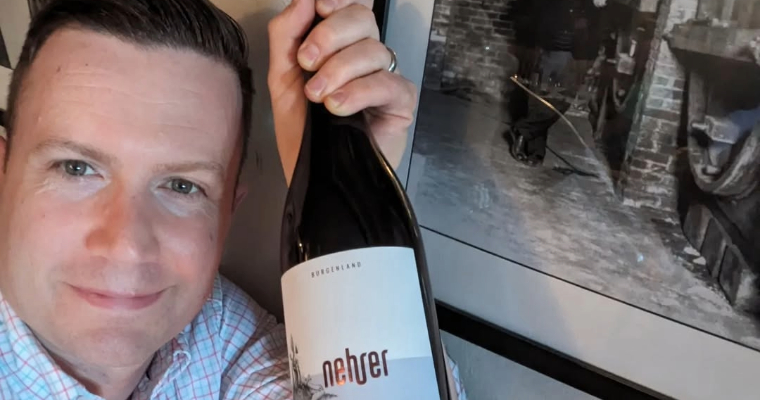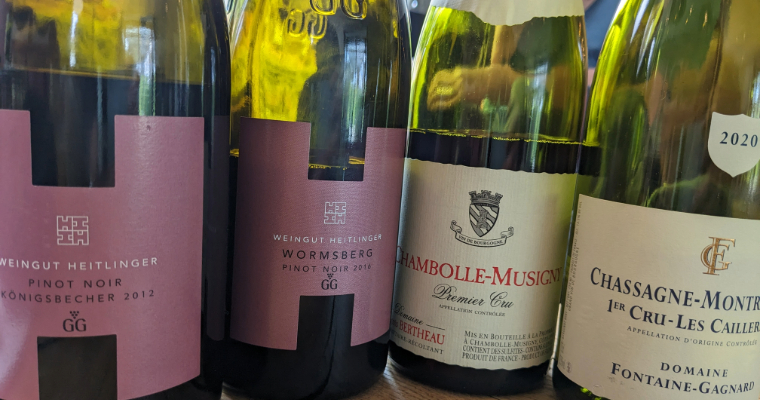Special Pricing Ends
March 12, 2025
Judging
Date
May 19, 2025
Winners Announcement
June 10, 2025

German wines have great promise on the American market, but importers sometimes find difficulty with consumer education, marketing, and positioning. Master Sommelier Jesse Becker, a Regional and Category Ambassador of the Sommeliers Choice Awards and Sales Manager at Veritable Wines & Estates, offers a great range of experience negotiating these obstacles. He reveals in this interview with the Sommeliers Choice Awards important tactics for importers trying to increase sales, improve distributor relationships, and raise the profile of German wines in the cutthroat American market. Becker MS offers great ideas for those trying to prosper from his thorough awareness of both German winemaking and the U.S. commercial environment.
Also read: The Who’s Who of German Wines in the USA: Top Importers and Distributors
[[relatedPurchasesItems-61]]
German wines occupy a niche yet steadily growing market in the U.S. The key to success lies in effective marketing, which must be tailored to specific consumer demographics. Importers need to understand that marketing is just as critical as sales, logistics, and operations. By leveraging the right marketing channels, they can successfully raise awareness and promote German wines to a broader audience.

Image: Master Sommelier Jesse Becker
Perceptions of German wines in the U.S. have evolved significantly over the past decade. Newer wine drinkers don't carry the same preconceived notions as previous generations; they are more open-minded and eager to explore wines from all regions. This shift presents a wealth of opportunities for German wines, especially with younger consumers who are more willing to try diverse offerings.
There’s a common misconception that German wines need to be treated differently or uniquely when promoting them. In reality, German wines are consumed in Germany much like French and Italian wines—dry wines served alongside food. Importers need to emphasize that German wines pair just as well with a wide variety of global cuisines, and in some cases, they may even offer more versatility than others.
Also read: Weingut Reichsrat von Buhl - Producing Top-notch Wines Since 1849
When selecting German wines for the U.S. market, I would start with regions known for producing exceptional Pinot Noir, such as Baden, Pfalz, and Rheinhessen. German Pinot Noir offers tremendous value and presents a compelling alternative to Burgundy, growing across a broader range of latitudes and soils than in France. The diversity and quality-to-price ratio (QPR) of German Pinot Noir are remarkable and still largely untapped. While established regions like Mosel, Rheingau, and Nahe have long-standing reputations, there are also many up-and-coming estates to watch. I recommend attending trade tastings and observing which established winemakers are tasting with newer producers—this can be a great indicator of emerging talent and wines making waves in the industry.

Image: German Pinot and Burgundy
Successfully pitching German wines to U.S. distributors and on-premise buyers can be challenging, but it's a critical part of my work. The good news is that U.S. distributors are becoming increasingly open to and aware of new German wines. We're seeing this shift at both the on-premise and consumer levels. It’s particularly interesting that you mention the on-premise market, as many U.S. distributors have expressed a desire to rebuild that aspect of their business post-COVID. German wines present a valuable opportunity to help them achieve that goal.
At Veritable Wines & Estates KG, we specialize in modern German wine styles, particularly dry German Riesling and Pinot Noir. Our portfolio includes one of the finest collections of German Pinot Noir in the U.S., alongside a balanced mix of established VDP estates and emerging producers. This allows us to offer exciting young estates like Schwedhelm alongside renowned VDP names like Von Othegraven, which complement each other beautifully. Additionally, we’ve developed a few volume brands that act as ambassadors for both our portfolio and German wine as a whole. Ultimately, we believe that the future of German wine lies in quality, and our brands are supported by exceptional fruit sources and top-tier winemaking.

Image: Stephan and Georg Schwedhelm of Weingut Schwedhelm
My guidance for novice importers is straightforward: it's a lengthy journey. Success comes from a commitment to consistently improving your portfolio, sales, operations, and customer service over the long term. Establishing a strong presence in the U.S. market requires patience, dedication, and a focus on gradual growth.
One of our greatest success stories is RESS Riesling trocken, a dry German Riesling made from organic fruit sourced from Rheinhessen. With its modern, uncomplicated label, it perfectly embodies the modern German wine style. This wine has become our top seller and serves as an ambassador for the style. Its success highlights the shift in consumer perceptions, proving that the market is moving away from outdated views of German wine and embracing its contemporary offerings.
Header image sourced from Jesse Becker’s Instagram
Related Links
Multipotentialite Jesse Becker MS Discusses Wine, Business and Hospitality
The Who’s Who of Austrian Wines in the USA: Top Importers, Restaurants, Merchants, and Distributors
Enter your Wines now and get in front of top Sommeliers, Wine Directors, and On-Premise Wine Buyers of USA.
